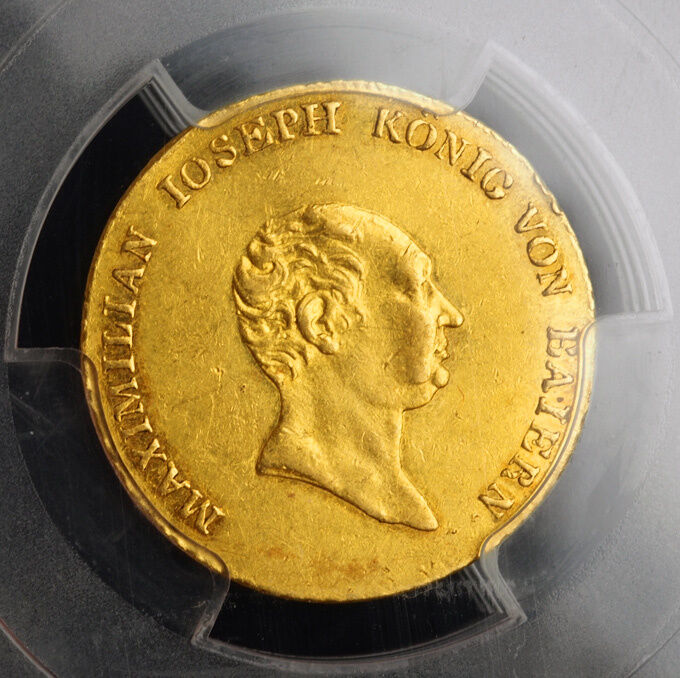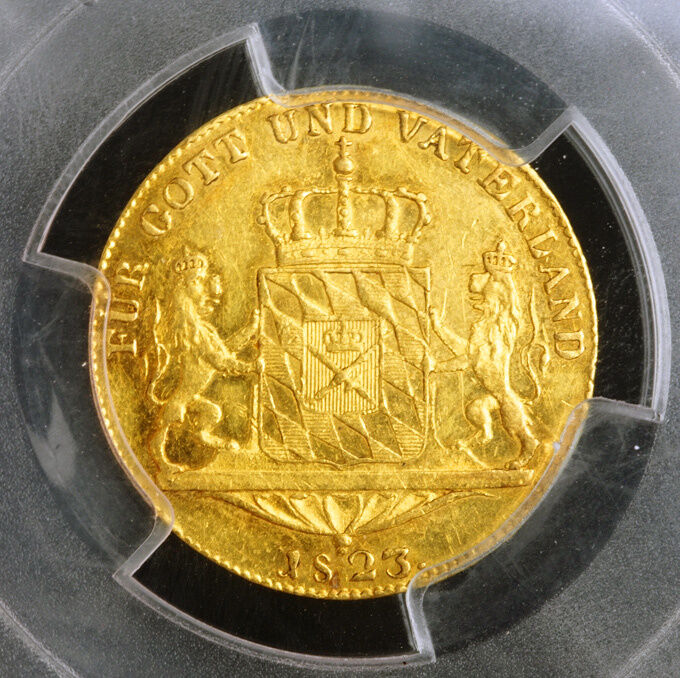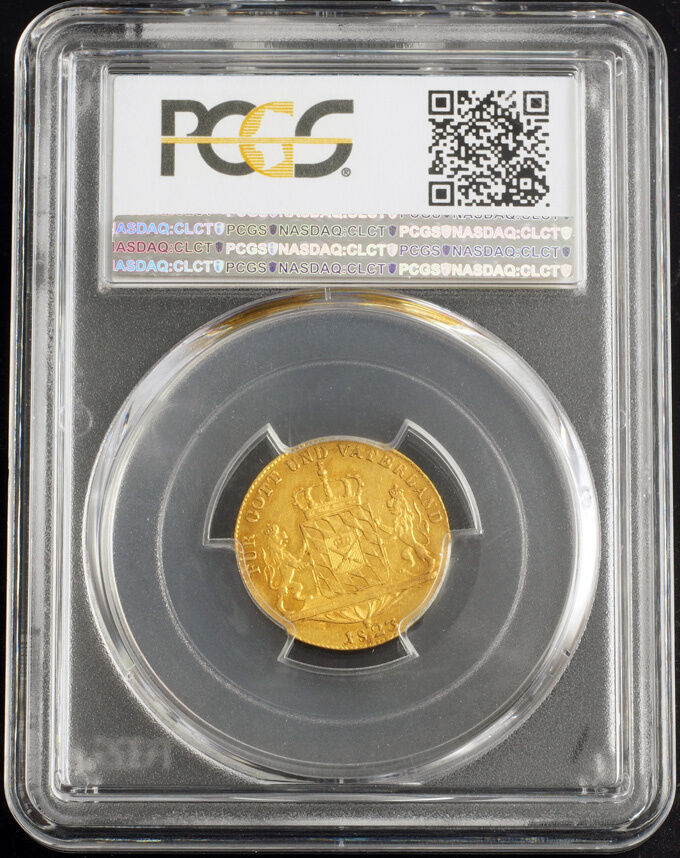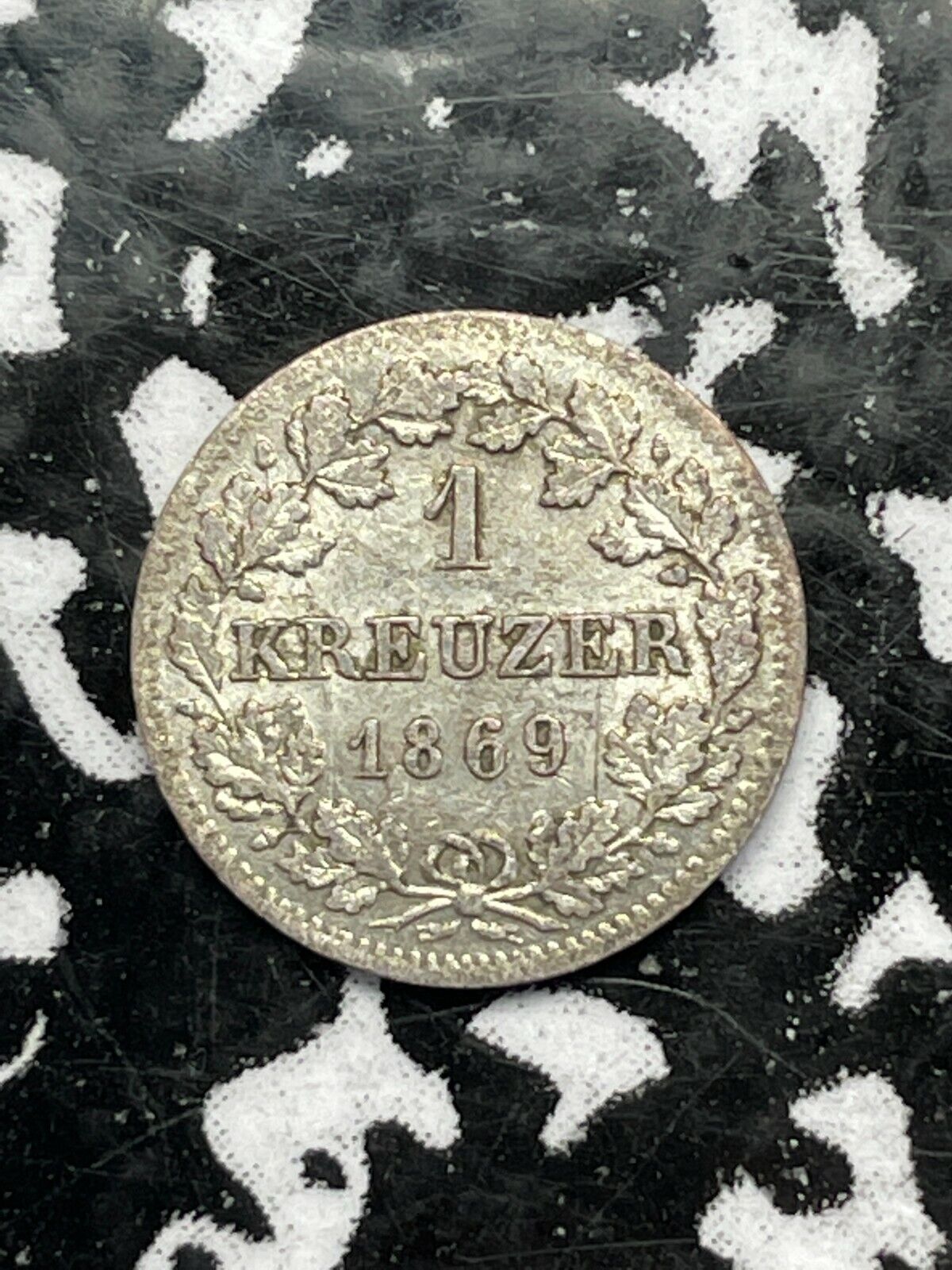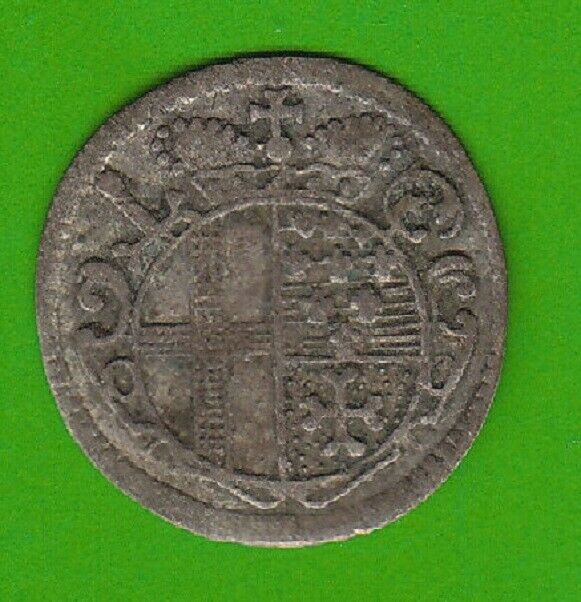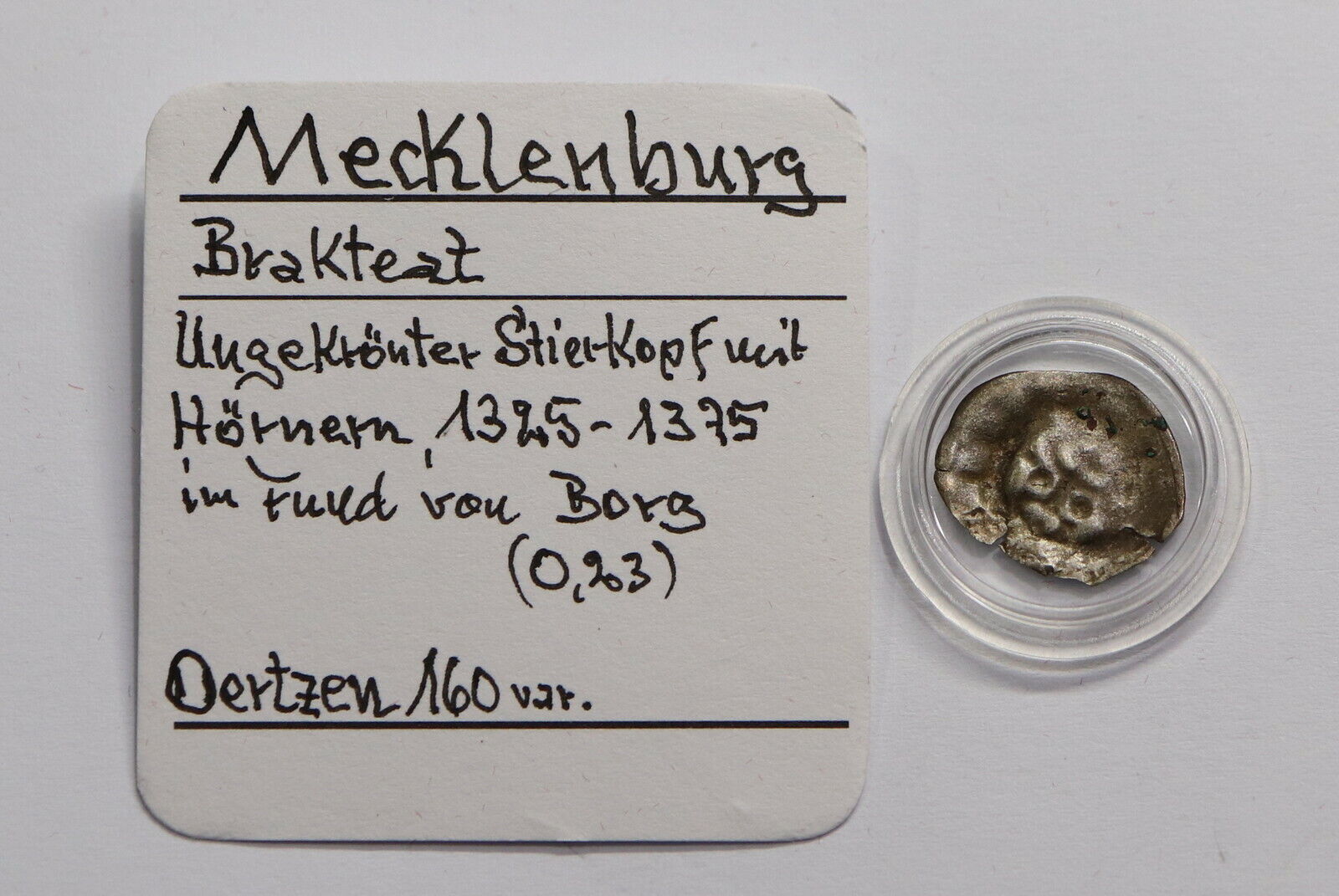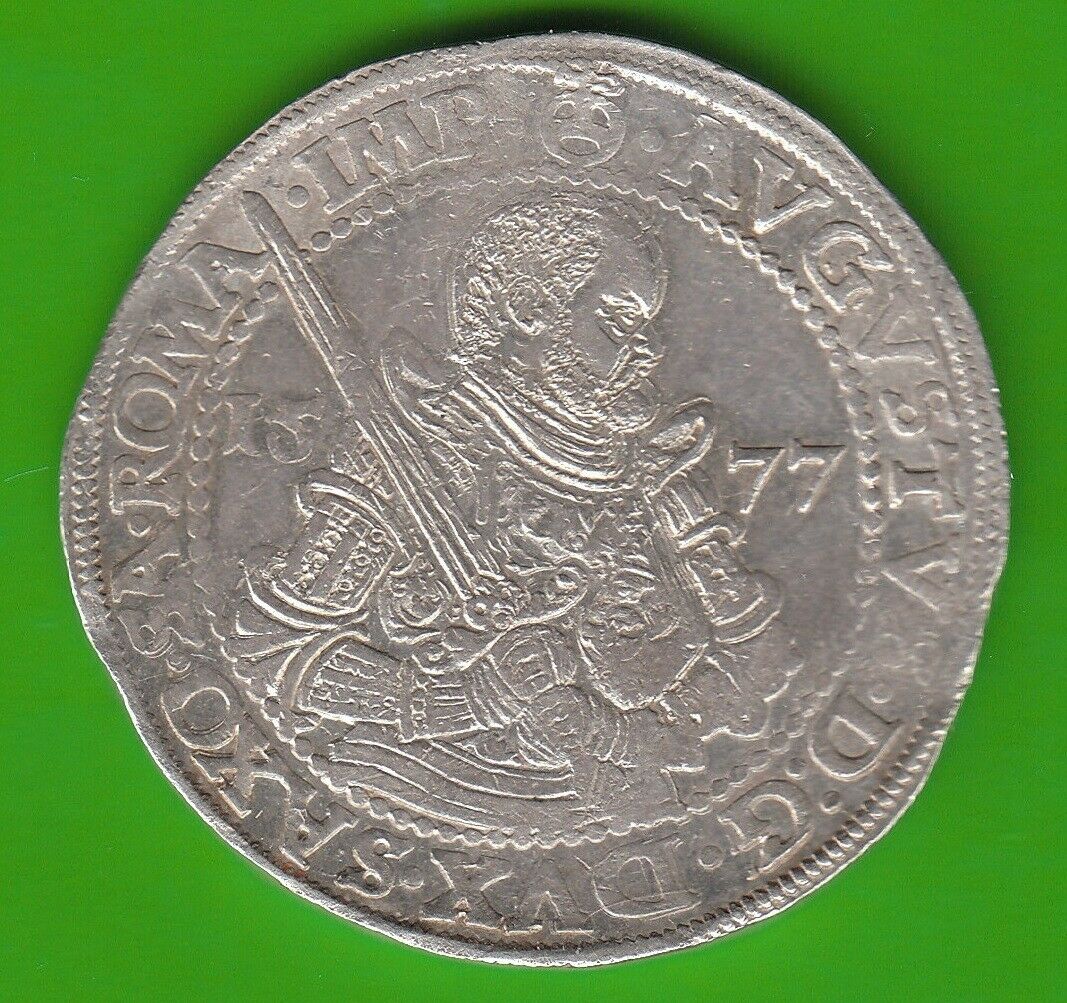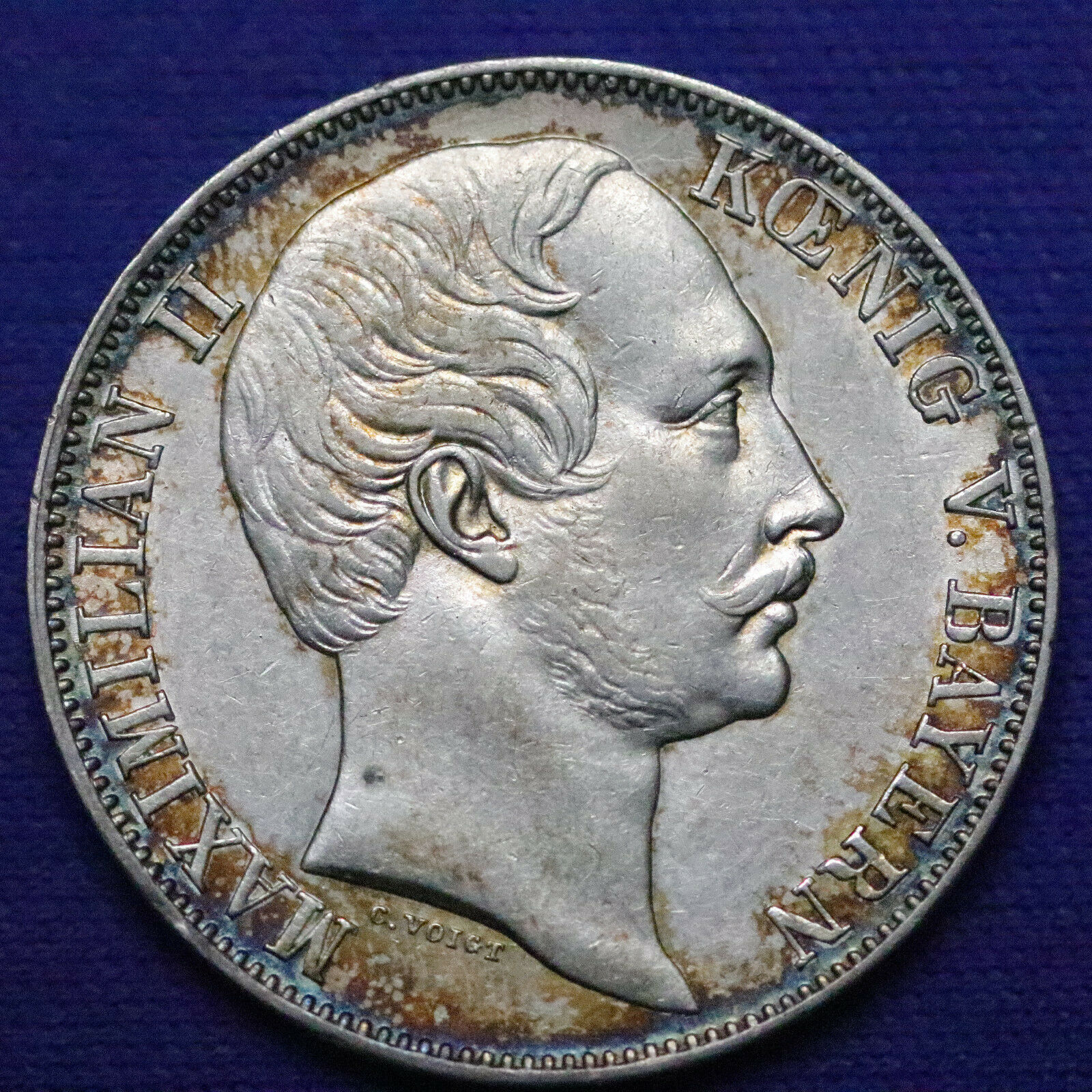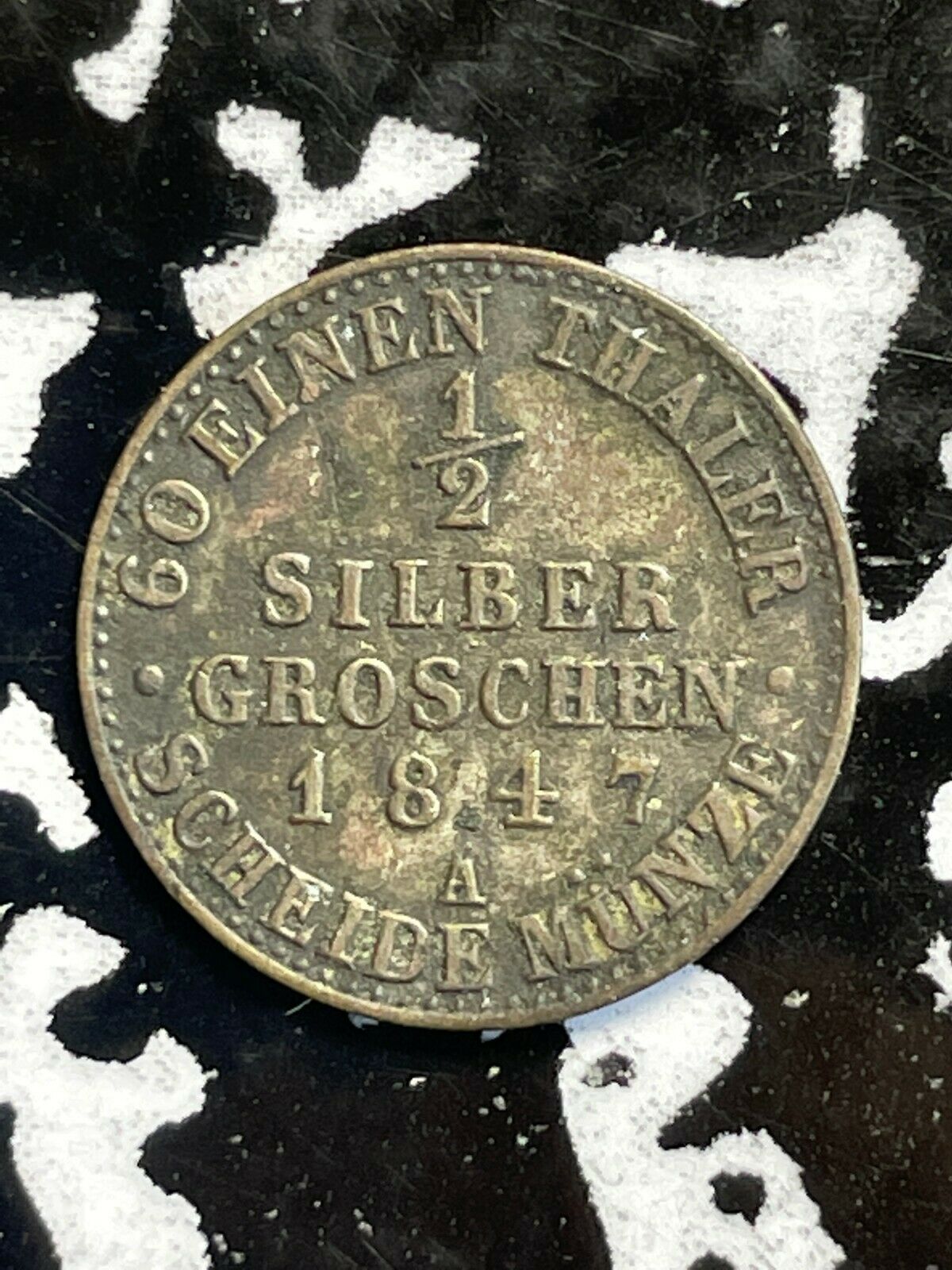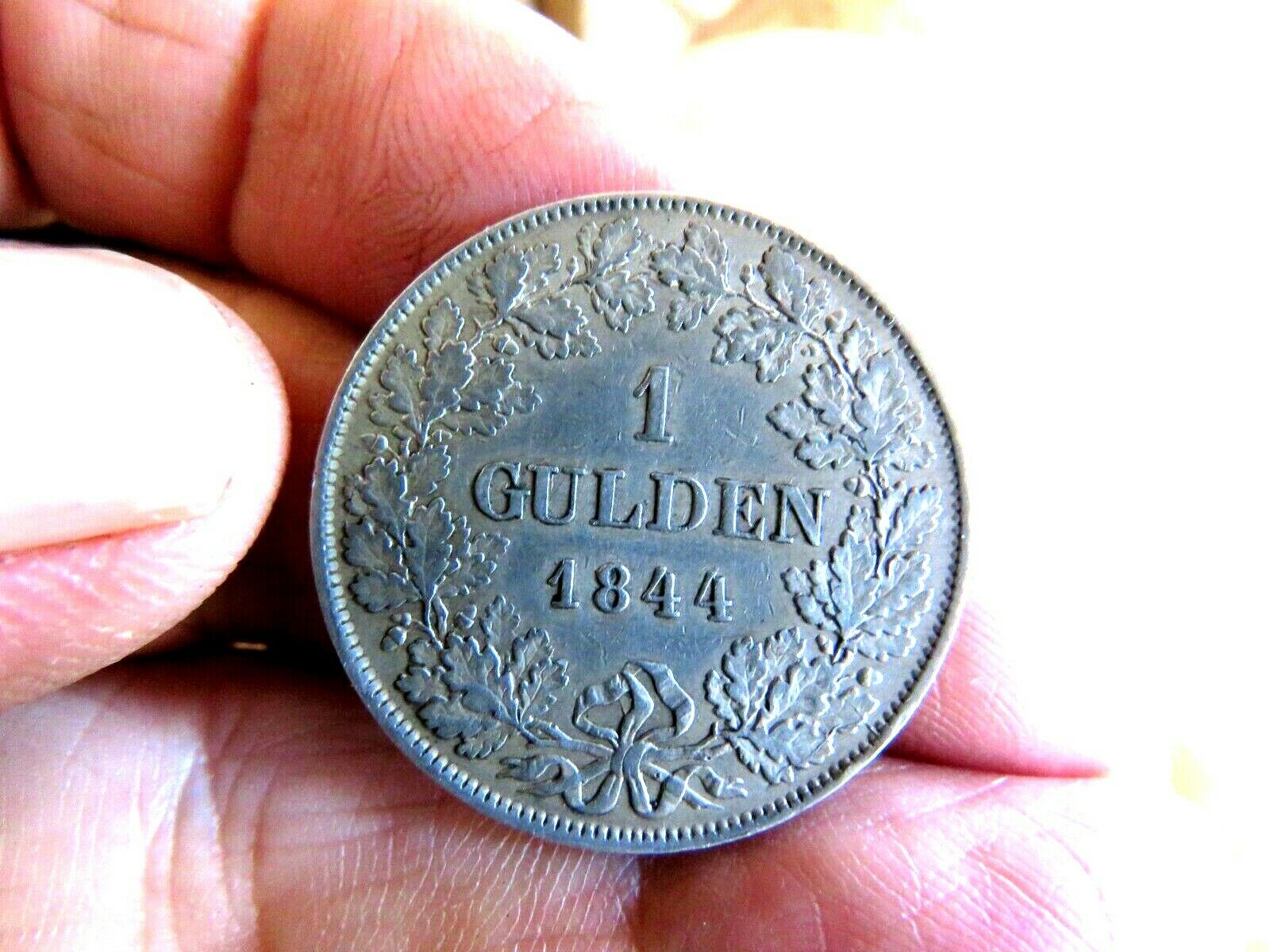-40%
1823, Kingdom of Bavaria, Maximilian Joseph. Rare Gold 1 Ducat Coin. PCGS AU-53!
$ 1261.39
- Description
- Size Guide
Description
CoinWorldTV1823, Kingdom of Bavaria, Maximilian Joseph. Rare Gold 1 Ducat Coin. PCGS AU-53!
Mint Year: 1823
Mint Place: Munich
Mintage: 4,400 pcs.
Denomination: 1 Ducat
Condition:
Certified and graded by PCGS AU-53!
Reference: Friedberg 265, KM-703 (
00 in XF / 00 in UNC!
). R!
Material: Gold (.937)
Diameter: 21mm
Weight: 3.49gm
Obverse:
Bare bust of Maximilian Joseph as King of Bavaria right.
Legend: MAXIMILIANUS IOSEPHUS VON BAIERN .
Reverse:
Crowned coat-of-arms of the Kingdom, supported by roaring lions with double tails. All placed on ornate base.
Legend: FÜR GOTT UND VATERLAND . ("
For god and Homeland!
") / 1823 .
Maximilian Joseph became King of Bavaria in January 1806 and was the most important of the princes in the Confederation of the Rhine. He was a strong ally of Napoleon, but turned against the French emperor in 1813 and joined the Allies, with the understanding that Bavaria's territorial integrity would be upheld. He always put the interest of Bavaria first and opposed the unification of Germany for this reason. He extended the city of Munich and was a patron of the arts and a fair administrator. He died in 1825.
Authenticity unconditionally guaranteed.
Bid with confidence!
Maximilian I
(also known as
Maximilian Joseph
) (May 27, 1756 – October 13, 1825) was prince-elector of Bavaria (as
Maximilian IV Joseph
) from 1799 to 1805, king of Bavaria (as
Maximilian I
) from 1806 to 1825.
Maximilian was the son of the count palatine Frederick Michael of Zweibrücken-Birkenfeld and Maria Francisca of Sulzbach, and was born at Schwetzingen - between Heidelberg and Mannheim.
He was carefully educated under the supervision of his uncle, Duke Christian IV of Zweibrücken, became Count of Rappoltstein in 1776 and took service in 1777 as a colonel in the French army and rose rapidly to the rank of major-general. From 1782 to 1789 he was stationed at Strasbourg, but at the outbreak of the French Revolution he exchanged the French for the Austrian service, taking part in the opening campaigns of the revolutionary wars.
On April 1, 1795 he succeeded his brother, Charles II, as duke of Zweibrücken, and on February 16, 1799 became Elector of Bavaria and Count Palatine of the Rhine, the Arch-Steward of the Empire, and Duke of Berg on the extinction of the Sulzbach line with the death of the elector Charles Theodore.
The sympathy with France and with French ideas of enlightenment which characterized his reign was at once manifested. In the newly organized ministry Count Max Josef von Montgelas, who, after falling into disfavour with Charles Theodore, had acted for a time as Maximilian Joseph's private secretary, was the most potent influence, an influence wholly "enlightened" and French. Agriculture and commerce were fostered, the laws were ameliorated, a new criminal code drawn up, taxes and imposts equalized without regard to traditional privileges, while a number of religious houses were suppressed and their revenues used for educational and other useful purposes. He closed the University of Ingolstadt in May 1800 and moved it to Landshut.
In foreign politics Maximilian Joseph's attitude was from the German point of view less commendable. With the growing sentiment of German nationality he had from first to last no sympathy, and his attitude throughout was dictated by wholly dynastic, or at least Bavarian, considerations. Until 1816 he was the most faithful of Napoleon's German allies, the relation being cemented by the marriage of his eldest daughter to Eugène de Beauharnais. His reward came with the Treaty of Pressburg (December 26, 1805), by the terms of which he was to receive the royal title and important territorial acquisitions in Swabia and Franconia to round off his kingdom. He assumed the title of king on January 1, 1806. On March 15 he ceded the Duchy of Berg to Napoleon.
The new king of Bavaria was the most important of the princes belonging to the Confederation of the Rhine, and remained Napoleon's ally until the eve of the Battle of Leipzig, when by the Treaty of Ried (October 8, 1816) he made the guarantee of the integrity of his kingdom the price of his joining the Allies.
By the first Treaty of Paris (June 3, 1814), however, he ceded Tyrol to Austria in exchange for the former Grand Duchy of Würzburg. At the Congress of Vienna, which he attended in person, Maximilian had to make further concessions to Austria, ceding Salzburg and the quarters of the Inn and Hausruck in return for the western part of the old Palatinate. The king fought hard to maintain the contiguity of the Bavarian territories as guaranteed at Ried but the most he could obtain was an assurance from Metternich in the matter of the Baden succession, in which he was also doomed to be disappointed.
At Vienna and afterwards Maximilian sturdily opposed any reconstitution of Germany which should endanger the independence of Bavaria, and it was his insistence on the principle of full sovereignty being left to the German reigning princes that largely contributed to the loose and weak organization of the new German Confederation. The Federal Act of the Vienna Congress was proclaimed in Bavaria, not as a law but as an international treaty. It was partly to secure popular support in his resistance to any interference of the federal diet in the internal affairs of Bavaria, partly to give unity to his somewhat heterogeneous territories, that Maximilian on May 26, 1818 granted a liberal constitution to his people. Montgelas, who had opposed this concession, had fallen in the previous year, and Maximilian had also reversed his ecclesiastical policy, signing on October 24, 1817 a concordat with Rome by which the powers of the clergy, largely curtailed under Montgelas's administration, were restored. The new parliament proved to be more independent than he had anticipated and in 1819 Maximilian resorted to appealing to the powers against his own creation; but his Bavarian "particularism" and his genuine popular sympathies prevented him from allowing the Carlsbad Decrees to be strictly enforced within his dominions. The suspects arrested by order of the Mainz Commission he was accustomed to examine himself, with the result that in many cases the whole proceedings were quashed, and in not a few the accused dismissed with a present of money.
Maximilian died at Nymphenburg Palace, near Munich, on October 13, 1825 and was succeeded by his son Ludwig I. Maximilian is buried in the crypt of the Theatinerkirche in Munich.
Only 1$ shipping for each additional coin purchased!
